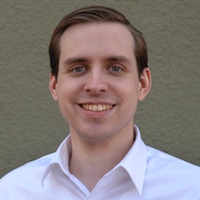Tanzania and the Soft Power of the United States
Media circuses surrounding unqualified presidential candidates are the U.S. political system’s new export.
June 30, 2015
It has been more than a decade since Joseph Nye’s bestselling book “Soft Power” vaulted the titular concept into the global consciousness and hung on the lips of countless world leaders.
Since then, there has been much handwringing in the United States about whether the United States has lost that cultural edge that softly influenced countries to emulate U.S. politics and economics.
Did events like the faked Iraq War intelligence permanently cripple American soft power? Did U.S. financialization lose its allure in the crisis?
Fear not! The United States is rapidly re-building its soft power via one crucial model that emerging nations can copy: ridiculous presidential campaigns.
Who wants to be a President?
The 2016 Republican Presidential field here in the United States is indeed filled with more than a dozen people who will never be elected president, will never be close to being elected president, and could never be president.
It’s easier than ever to run for several months, get a lot of attention and then get a media or publishing deal out of it. It’s like youth soccer participation trophies for rich men (and a few women) with frothing fanbases.
The media circus and ratings bonanza of a field of utterly unqualified clowns is showing the political parties and media operatives of the developing world the glorious future of lucrative, nonsensical democracy.
Gone will be the days of rigged coronations where one candidate bullies the others out of the race and captures 97% of the vote. Only a few people benefit from that. Why not follow the U.S. model and let literally everyone participate in the feeding frenzy?
That classic American spirit might be one of the few American concepts that still has market potential on the soft power exports front.
In the footsteps of the U.S.
Tanzania is making a bold case for adopting the current U.S. presidential election circus system.
Aiming to preserve single-party rule there, Tanzania’s ruling party and state media have suddenly (and very probably only temporarily) elevated an unknown farmer to rockstar status because he filed to run in their 30 candidate presidential primary against far more experienced and affluent candidates, including more than one former prime minister:
Eldoforce Bilohe is a 43-year-old farmer with a primary class seven level of education, who wants to be the next president of Tanzania.
Supporters of the CCM will argue that the fact that an ordinary party member of humble means is able to vie for the party presidential nomination is evidence of true and inclusive democracy within the party.
In truth, the Tanzanian opposition may be nearing its first real chance of victory as it unites under one umbrella.
What better way to disrupt this building attention through the distraction of a U.S.-style nomination contest in the ruling party?
If the mighty and wise Americans in their extensive democratic experience as a nation allow anyone to run for their president – including people without degrees, a history of failed businesses, little (or no) elected experience, and views that seem more home in the 14th century than the 21st – surely that is the future of Tanzanian democracy.
